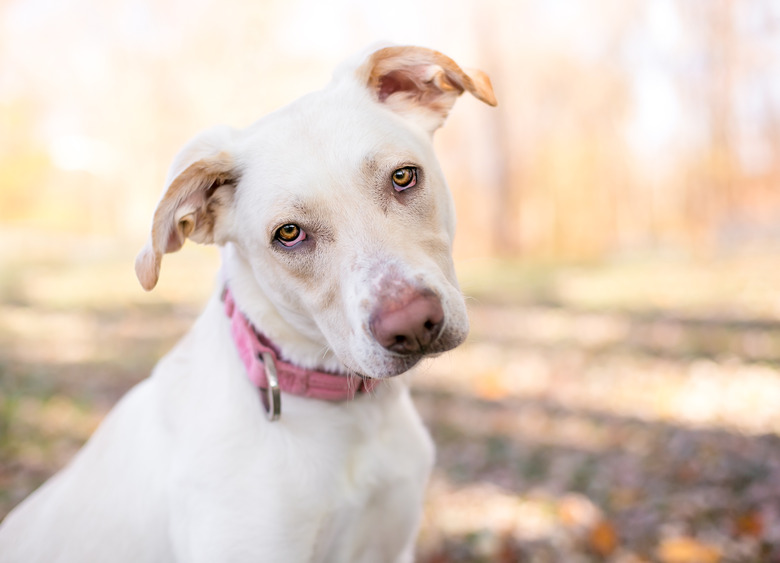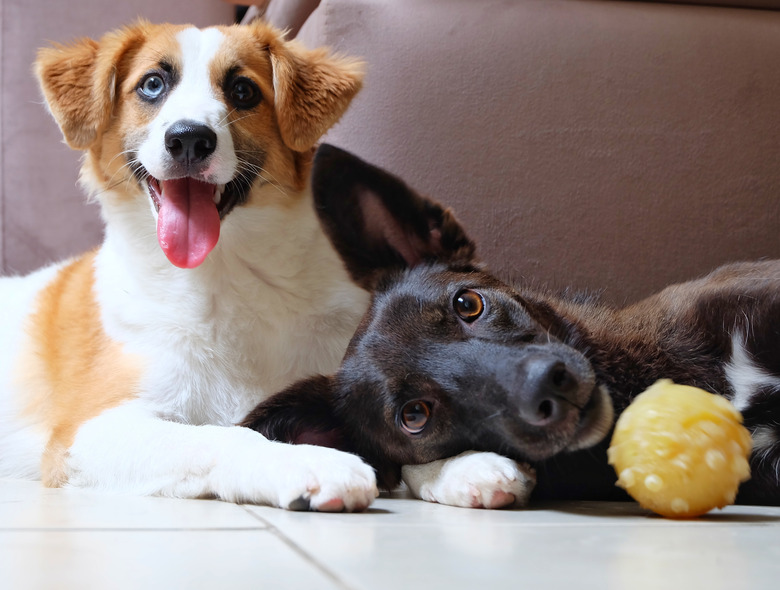How Accurate Are Dog DNA Tests?
If you're one of the millions of people who have adopted a dog from a shelter or rescue, you may have only a vague idea of what breed(s) your pup actually is. Knowing more about your dog's genetic background could give you insights into their health and behavior, but are dog DNA tests accurate?
How accurate are dog DNA tests?
How accurate are dog DNA tests?
There are dozens of dog DNA tests to choose from online. Companies may advertise their tests as having an accuracy rate ranging from 93% (MarsPet) to 98% (Wisdom Panel). With DNA kits ranging from $60 to over $150, it's important to understand where these numbers are coming from.
Because dog DNA testing is an unregulated industry, veterinarians and behavioral experts caution that dog DNA test results are not as accurate as advertised. Dog DNA tests are not inherently unsafe because they are unregulated, but they are not held to strict standards as in other industries. This means that the accuracy percentages reported by dog DNA test companies are reported by the company itself and are not peer-reviewed or monitored by an outside organization.
Luckily, dog experts in the International Partnership for Dogs (IPFD) are joining forces to promote education on dog genetics and DNA testing. The IPFD is comprised of veterinarians, breeders, and geneticists seeking to enhance dog health and welfare. The IPFD oversees the Harmonization of Genetic Testing (HGTD) for Dogs, which seeks to improve the standardization of, and access to, robust genetic testing.
The HGTD's website has a handy search function which consumers can use to research which genetic testing companies have been found to offer accurate results.
How do dog DNA tests work?
How do dog DNA tests work?
To use a dog DNA test, you will need to collect a DNA sample from your dog. Most companies use a cheek swab to collect saliva, but others may use a fecal swab. Your dog's DNA contains information about their genes, which determine everything from genetic diseases to coat color.
Once the DNA sample has been collected, you will place it in the appropriate packaging, mail it off to be tested, and wait for your results.
How to swab your dog's cheek
1. Read through the instructions included with your test kit. Testing kits typically include one or two swabs and a plastic tube or package for mailing. Swabs are sterilized and individually packaged, so don't open them until you are ready to collect the sample. If you are doing a swab for two or more dogs, use a different swab for each dog and wash your hands between collecting samples.
2. A cheek swab should be done at least an hour after a dog has eaten to avoid contamination of the sample. Before swabbing, check your dog's mouth for any leftover food particles. Clean or rinse their mouth to remove food bits if needed.
3. Hold the swab by the handle and avoid touching the collection tip. The tip of the swab should not touch anything other than the inside of your dog's mouth and the inside of the packaging. While holding the swab handle, insert the tip along the inside of your dog's cheek. Rotate the tip along the inside of the cheek for 10 seconds. Gently press on the outside of your dog's cheek as you rotate the swab, and press the swab between the gum and cheek to ensure adequate cell collection.
What can dog DNA tests tell you?
What can dog DNA tests tell you?
Pet owners look to DNA tests to tell them more about their dog's genetic makeup, breed makeup, health risks, and potential genetic diseases. Different companies offer tests for breed identification only, health testing only, or both. As mentioned above, it's important to take the results with a grain of salt.
If your dog's test results come back with genetic markers for certain diseases or health conditions, don't panic. Schedule an appointment with your veterinarian to discuss your concerns and get more information.
Dog DNA test FAQs
What are the limitations of dog DNA testing?
Dog DNA testing is a new and complicated science. Accurately analyzing pet DNA to determine genetic health requires a lot of data (sometimes tens of thousands of test subjects) that scientists just don't have yet.
Dog DNA testing companies are not necessarily experts in veterinary medicine. DNA tests are not a substitute for health screening for your dog. Regular veterinary checkups are your best tool for keeping your dog happy and healthy.
What factors can affect the accuracy of a DNA test?
Incorrect swabbing or packaging of a DNA sample can cause inaccurate results. DNA tests from companies who test more genetic markers tend to be more accurate than those with fewer genetic markers, but results can also be affected by the number of dog breeds in a lab's breed database. More breeds within a DNA database can give more accurate results.
What should a dog owner do with an inaccurate DNA test result?
If your dog's breed composition results look wildly inaccurate, contact the testing company. A dog's appearance is not a perfect predictor of their genetic makeup, but there may have been a testing error if you're fairly confident of your dog's Pitbull background and results show miniature poodle.
The bottom line
The bottom line
Whether purebred, super-mutt, or somewhere in between, we love our dogs and want the best for them. Dog DNA test kits can be a fun way to find out about your dog's ancestry, but they are not 100% accurate. Proper genetic testing can provide information on a dog's breed makeup and genetic health. However, they should not be used as a substitute for regular veterinary checkups.



